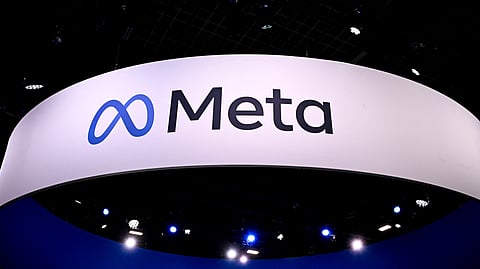
- NEWS
- the EDIT
- COMMENTARY
- BUSINESS
- LIFE
- SHOW
- ACTION
- GLOBAL GOALS
- SNAPS
- DYARYO TIRADA
- MORE

Meta Platforms must face a lawsuit from Massachusetts alleging that the company knowingly implemented addictive features on its Instagram platform, particularly targeting young users, according to a ruling by Suffolk County Superior Court Judge Peter Krupp in Boston. The decision, made public on Friday, rejected Meta's attempt to dismiss the claims, which accuse the tech giant of deceiving the public about the mental health risks posed by its social media platform, especially to teenagers.
The lawsuit, spearheaded by Massachusetts Attorney General Andrea Joy Campbell, argues that Meta violated state consumer protection laws and created a public nuisance. Nate Raymond from Reuters reported that the case centers around the accusation that Instagram's features—such as push notifications, "likes," and infinite scrolling—were designed to exploit young users' psychological vulnerabilities, fostering addictive behavior.
Meta had argued that the state's case should be dismissed under Section 230 of the Communications Decency Act, which shields internet companies from liability over content posted by users. However, Judge Krupp ruled that the law does not apply in this case, as the allegations concern Meta's own business practices rather than third-party content. Specifically, the claims address the company's failure to disclose the dangers of Instagram to young users and its inadequate efforts to protect their well-being.
Attorney General Campbell praised the ruling, stating, "We can now move forward with our claims to hold Meta accountable and continue to push for meaningful change on Meta's platforms that will protect young users." Meta, on the other hand, expressed disagreement with the decision, maintaining that the evidence will demonstrate its commitment to supporting young people.
This ruling comes shortly after a federal judge in California rejected a similar request by Meta to dismiss lawsuits brought by over 30 states, accusing the company of contributing to mental health issues among teenagers through its addictive platforms. Massachusetts was among a select group of states that chose to pursue separate claims in state court, elevating the profile of the case, particularly due to allegations that Meta CEO Mark Zuckerberg had ignored internal concerns about the platform's impact on teens.
As this legal battle unfolds, it highlights growing concerns over social media's effects on mental health, especially for vulnerable young users. With similar issues of online addiction and mental health risks increasingly affecting teens worldwide, including here in the Philippines, it serves as a reminder for parents and guardians to remain vigilant about the content and platforms their children engage with. Ensuring open communication and fostering digital literacy are critical steps in helping young users navigate the potential dangers of social media.
